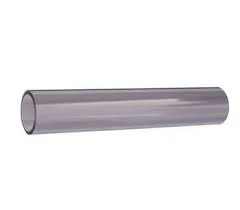พ.ย. . 12, 2024 07:05 Back to list
hdpe plastic cutting board
The Utility of HDPE Plastic Cutting Boards
In culinary practices around the world, cutting boards play a crucial role. They serve as a durable surface for chopping, slicing, and dicing various ingredients. Among the materials used for making cutting boards, High-Density Polyethylene (HDPE) has gained popularity due to its unique properties and numerous benefits. In this article, we will explore the advantages of HDPE plastic cutting boards, their maintenance, and their impact on food safety.
Advantages of HDPE Cutting Boards
1. Durability HDPE is known for its impressive strength and durability. Unlike wooden cutting boards, which can warp or crack over time, HDPE cutting boards are resistant to scratches, dents, and other forms of wear and tear. This makes them a long-lasting option for both home cooks and professional chefs.
2. Non-Porous Surface One of the standout characteristics of HDPE is its non-porous surface. This feature prevents bacteria from penetrating deeply into the material, making it easier to maintain hygiene. Unlike wooden boards, which can harbor bacteria in their seams and pores, HDPE boards can be easily sanitized. This characteristic is particularly important in the food industry, where maintaining sanitary conditions is paramount.
3. Lightweight and Easy to Handle HDPE cutting boards are lighter than many traditional alternatives, such as glass or wood. This feature makes them easy to transport and maneuver in the kitchen, which can be especially beneficial when dealing with larger quantities of food. Their lightweight nature does not compromise their sturdiness, providing a reliable surface for all types of food preparation.
Maintenance of HDPE Cutting Boards
Maintaining HDPE plastic cutting boards is straightforward, contributing to their overall appeal. They are dishwasher safe, which means they can be easily cleaned at high temperatures to eliminate bacteria and other contaminants. For those who prefer handwashing, a simple mixture of hot water and mild soap is sufficient. To avoid damage, it’s recommended to use a non-abrasive sponge when cleaning.
hdpe plastic cutting board

Another advantage of HDPE boards is their resistance to staining and absorbing odors, unlike wooden boards that can take on unwanted smells over time. Should the surface become scratched, which can happen with sustained use, light sanding can restore the board’s smoothness without compromising its integrity.
Impact on Food Safety
Food safety is an essential consideration in any kitchen. Cutting boards can often be overlooked as potential tools for cross-contamination. However, HDPE boards are designed with food safety in mind. As previously mentioned, their non-porous surface reduces the risk of bacteria growth. Many professional kitchens opt for color-coded HDPE cutting boards to help avoid cross-contamination, assigning specific colors for different food groups, such as meats, vegetables, and dairy products.
Moreover, the FDA approves HDPE for food contact, ensuring that it does not leach harmful substances into food. This food-grade property further underscores HDPE’s reliability in a kitchen environment.
Environmental Considerations
As awareness of environmental issues grows, it is worth mentioning that many HDPE cutting boards are recyclable. This feature makes them an environmentally friendly choice compared to some other materials. The plastic used in HDPE boards can often be repurposed, reducing landfill waste when it's time for replacement.
Conclusion
In conclusion, HDPE plastic cutting boards offer a range of advantages that make them a preferred choice for both home and professional kitchens. Their durability, non-porous nature, ease of maintenance, and positive impact on food safety render them a practical solution for food preparation. With their lightweight design and user-friendly characteristics, they simplify the cooking process while ensuring hygiene and safety. As culinary practices continue to evolve, HDPE cutting boards stand out as a modern, effective, and environmentally conscious option for food enthusiasts everywhere. Whether you’re chopping vegetables, slicing meats, or preparing a beautiful charcuterie board, investing in an HDPE cutting board is a decision that can elevate your culinary experience.
-
Durable PP Rigid Sheet: Lightweight, Chemical Resistant Solutions
NewsAug.21,2025
-
PVC Grey Sheet for Extraction: Chemical Resistant & Durable
NewsAug.19,2025
-
Durable PVC Pipe Fittings for Plumbing & Irrigation Needs
NewsAug.18,2025
-
HDPE Steel Belt Reinforced Spiral Corrugated Pipe | High Strength
NewsAug.17,2025
-
HDPE Pipe Fittings: Durable, Leak-Proof Solutions
NewsAug.16,2025
-
Premium CPVC Sheet: High-Temp & Chemical Resistant Solutions
NewsAug.15,2025

